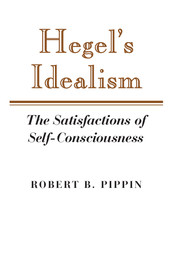Summary
The “Hegelian aftermath,” as a recent book calls it, involves a puzzling irony. Simply stated, Hegel seems to be in the impossible position of being both extraordinarily influential and almost completely inaccessible. On the one hand, there is Hegel's enormous philosophic and historical influence. Although an arguable claim, it is not unreasonable to assert that much of what current academic practice categorizes as “contemporary European philosophy” begins with and is largely determined by Hegel. For the most part, this influence has to do with Hegel's introduction of the problem of “historical subjectivity” into that tradition, and the way in which his account of that issue decisively altered the traditional understanding of a wide variety of philosophical issues. What before Hegel might have seemed, unproblematically, to be an empirical fact or a conceptual truth or a moral claim now seemed to many distinctly historical phenomena – products, in some way, of the activity of human “spirit” – and so to require a very untraditional account. Moreover, even when he was violently opposed, it was Hegel who seemed to set the agenda, and even when he was ignored or held in contempt, his shadow stretched across various debates in ways often not recognized. And, of course, the mere mention of the name of Marx is sufficient to summarize Hegel's most visible influence on world history.
And yet, on the other hand, Hegel seems to have convinced or enraged so many intellectual luminaries without the existence of anything remotely resembling a consensus about the basic position of Hegelian philosophy.
- Type
- Chapter
- Information
- Hegel's IdealismThe Satisfactions of Self-Consciousness, pp. 3 - 15Publisher: Cambridge University PressPrint publication year: 1989



